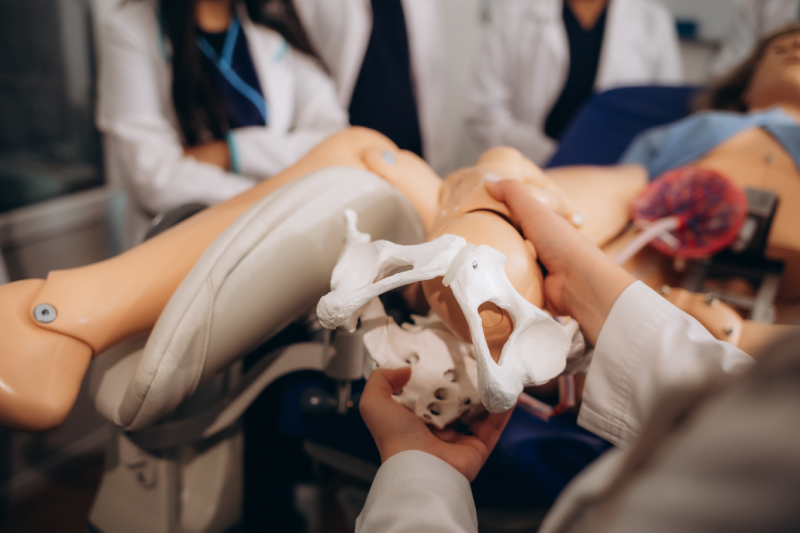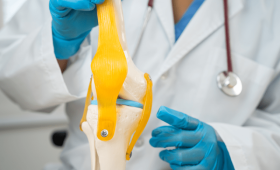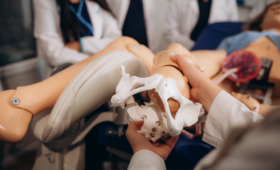What is the average cost of knee replacement surgery in Turkey?
The cost of knee replacement surgery in Turkey varies depending on many factors, such as the scope of the operation, the type of prosthesis used, and the surgeon’s experience. On average, prices range from $7,000 to $15,000. These prices are generally offered as “all-inclusive” packages that include the surgical procedure, hospital stay, anesthesia, medications, and a portion of the post-operative physical therapy sessions. These costs are significantly lower compared to Europe and North America.
What are the reasons for the low costs in Turkey?
The main reasons for the lower costs of knee replacement surgery in Turkey include more affordable general living expenses and labor costs, high competition in the healthcare sector, and government incentives. Additionally, the favorable exchange rate makes the costs even more attractive, especially for foreign patients. These factors allow for the provision of high-quality services at affordable prices without compromising on quality.
What is included in the cost of the surgery?
The cost of knee replacement surgery in Turkey generally includes the surgical operation, hospital stay (usually 4-7 days), anesthesia, the fees of the surgeon and the team, the cost of the prosthesis used during the surgery, and the necessary post-operative medications. Some comprehensive packages may also include services such as airport transfer, accommodation, and interpreter services. When getting a price quote, it is important to learn in detail what is included in the package and what requires an extra fee.
What are the possible additional costs not included in the price?
There may be items not included in the surgery packages that could create additional costs. These include detailed pre-operative tests (additional MRI, ECG, etc.), medications or physical therapy sessions requested outside the package, additional treatment costs for potential post-operative complications, and physical therapy expenses in your home country following the surgery. Therefore, getting information about possible additional costs in advance will help you manage your budget correctly.
Is it safe to have knee replacement surgery in Turkey?
Knee replacement surgeries in Turkey are very safe when performed in hospitals with state-of-the-art equipment by experienced surgeons in compliance with international standards. Many Turkish hospitals have international accreditations such as JCI (Joint Commission International). These accreditations show that the hospital complies with patient safety and quality standards. Risks can be minimized by choosing the right clinic and surgeon.
How can I find the best knee replacement surgeons in Turkey?
To find the best knee replacement surgeon in Turkey, you should first focus on the surgeon’s experience and expertise. The number of knee replacement surgeries the surgeon has performed, whether they have special training in this field, and their participation in international scientific studies are important. Additionally, reviewing the comments and references of previous patients will help you understand the surgeon’s success rates and patient satisfaction.
What should be considered when choosing a surgeon?
Choosing a surgeon is one of the most critical steps for the success of the surgery. Things to consider: The surgeon’s expertise in orthopedics and traumatology, their experience in knee replacement surgeries, the hospital’s or clinic’s international accreditations, their communication skills, and how they manage the post-operative follow-up process. A reliable surgeon will honestly inform you about the potential risks and expected results of the surgery.
What is the quality of the prostheses used in knee replacement surgery in Turkey?
In knee replacement surgeries in Turkey, the highest quality and latest generation prostheses used in Europe and the USA are utilized. These prostheses are generally made from biocompatible materials such as titanium, cobalt-chromium, and special polyethylene. Surgeons make a meticulous evaluation to choose the most suitable prosthesis for the patient’s age, activity level, and bone structure. Quality prostheses ensure the surgery is long-lasting and successful.
How does the surgical process generally work?
The surgical process begins before the patient arrives in Turkey. First, the patient’s medical history and imaging results (MRI, X-ray) are evaluated by the surgeon through an online consultation. After approval is given, travel and accommodation planning is done. Upon arrival in Turkey, the patient is admitted to the hospital for final checks and tests, and the surgery is performed. The post-operative physical therapy process begins immediately.
What is the pre-operative consultation process like?
The pre-operative consultation is usually done online while the patient is in their home country. During this consultation, the surgeon listens to the patient’s complaints, examines the existing imaging results, and decides whether the surgery is suitable for the patient. During this consultation, the patient can ask all their questions about the surgery, recovery process, and costs. This transparent communication ensures that the patient feels confident.
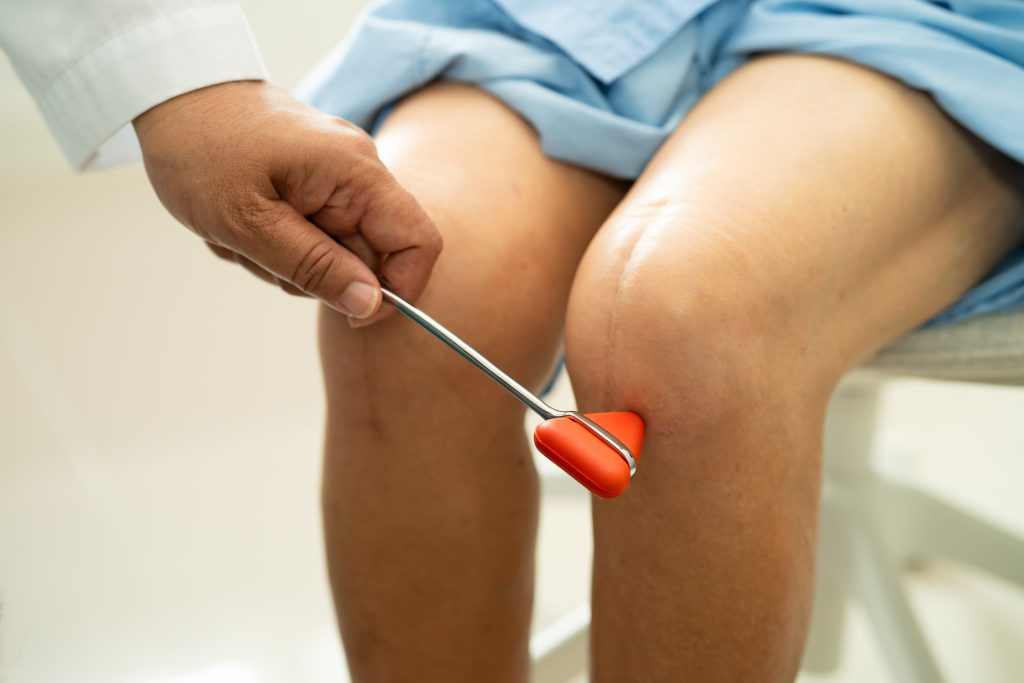
How long do I stay in the hospital after the surgery?
The duration of the hospital stay after knee replacement surgery is generally between 4 and 7 days. This period may vary depending on the patient’s recovery speed and the doctor’s follow-up. During their stay in the hospital, the patient is supported with pain management, wound care, and early physical therapy exercises. During this process, nurses and physical therapists help the patient regain their mobility.
How long does the post-operative recovery process take?
Although the post-operative recovery process for knee replacement surgery varies from person to person, full recovery takes between 6 months and 1 year. In the first few weeks, swelling and bruising are at their highest level. Within the first 6 weeks, mobility is regained by using a walker or crutches. Regular physical therapy is the most important part of the recovery process. Full functional recovery and a return to normal activities can take up to 1 year.
Are accommodation and transfer services offered for patients coming from abroad?
Yes, many clinics and hospitals in Turkey offer comprehensive packages for patients coming from abroad. These packages can include services such as airport transfer, accommodation at contracted hotels before and after the surgery, and even city transportation. These services aim to make the patient’s travel and treatment process less stressful.
When should I travel to Turkey for the surgery?
It is generally recommended to travel to Turkey 1-2 days before the surgery date for surgical planning and pre-operative preparations. This allows for both the recovery from travel fatigue and for the final pre-operative checks, tests, and face-to-face consultation with the surgeon to be done comfortably. After the surgery, it is usually recommended to stay in Turkey for another 7-10 days.
What accreditations do hospitals in Turkey have?
Many large private hospitals in Turkey have international accreditations that document international patient safety and quality standards. The most well-known of these are JCI (Joint Commission International) and ISO 9001. These accreditations show that the quality of the service and patient safety offered by the hospital are at an international level.
Is knee replacement surgery a painful process?
Pain after knee replacement surgery can be managed very well thanks to modern pain management methods. The chronic pain felt before the surgery disappears after the surgery. The pain felt in the first few days after the surgery is kept at a minimum level with the pain relievers prescribed by the doctor. Patients generally state that they feel a sense of fullness and mild discomfort.
What is the importance of post-operative physical therapy?
Post-operative physical therapy is of vital importance for the success of knee replacement surgery. A regular and disciplined physical therapy program increases the mobility of the new joint, strengthens the surrounding muscles, and helps the patient regain their normal walking ability. A successful physical therapy process extends the life of the prosthesis and maximizes the patient’s quality of life.
When can I return to work after the surgery?
The time to return to work depends on the type of work you do and your personal recovery speed. If you work in an office-based job, you can return to work 3-4 weeks after the surgery. If you work in a job that requires physical strength or heavy lifting, this period can extend up to 2-3 months. It is best to talk to your doctor to determine the most suitable time.
When can I start exercising after the surgery?
It is important to start exercising gradually and with your doctor’s approval after knee replacement surgery. In the first few weeks, light exercises such as walking can be done. After 3-6 months from the surgery, low-impact sports such as swimming, cycling, and golf can be started. It is recommended to avoid sports that put a high load on the knee joint, such as running, tennis, or basketball, for life.
What are the most common post-operative complications?
The most common complications of knee replacement surgery include infection, blood clotting, and the prosthesis shifting or loosening. However, with modern surgical techniques and precautions taken before the surgery, these risks are very low. Your surgeon will inform you in detail about all potential risks before the surgery.
Is a visa required and how is it obtained?
Whether a visa is required for patients traveling to Turkey depends on the patient’s nationality. For many European countries and US citizens, travel to Turkey is possible without a visa or with an online e-visa. However, it is important to check the current visa requirements on the official website of the Ministry of Foreign Affairs of Turkey before traveling. In some cases, a special visa may be required for medical travel.
When can I start driving after the surgery?
Before you can start driving after knee replacement surgery, you must fully regain control and strength in your leg. This process usually takes place 4 to 6 weeks after the surgery. It is vital that you have the full ability to suddenly brake or turn the steering wheel in an emergency. You should not start driving without your doctor’s approval.
What should the post-operative diet be like?
Post-operative nutrition is of great importance for speeding up the recovery process. Adequate intake of protein, calcium, and Vitamin D supports bone and tissue healing. Consuming plenty of fluids helps prevent dehydration and constipation. Post-operative weight control is also important to reduce the load on the new prosthesis.
Do the prostheses used in the surgery have a warranty?
The prostheses used in knee replacement surgery generally have a certain warranty period from the manufacturer. However, this warranty does not guarantee the success of the surgery or the lifespan of the prosthesis. The life of the prosthesis depends on the patient’s lifestyle, activity level, and the care they show after the surgery. A quality prosthesis can last for 15-25 years or more.
How modern are hospitals in Turkey?
Turkey, with its investments in health tourism, is home to modern and high-tech hospitals. These hospitals are equipped with the latest medical technologies, such as robotic surgery systems, advanced imaging devices, and sterile operating rooms. This contributes to the surgery being safer and more successful.
What kind of tests are done before the surgery?
Before the surgery, a series of tests are performed to evaluate your general health status. These tests usually include standard examinations such as blood and urine tests, a chest X-ray, and an ECG (electrocardiogram). These tests are of critical importance to determine whether there are any risks during anesthesia and surgery.
What is the post-operative follow-up process for patients coming from abroad?
The post-operative follow-up process for patients coming from abroad usually continues through online platforms. After the patient returns to their home country, they stay in contact with their doctor through video conferences. Wound healing, mobility, and pain status are regularly monitored. If necessary, the patient is referred to suitable physical therapists and local clinics.
Is the cost of a unilateral and bilateral knee replacement surgery different?
Yes, the costs of unilateral knee replacement surgery and bilateral knee replacement surgery are different. Bilateral surgery is more expensive than a single surgery because it requires more time, materials, and a longer hospital stay. However, the total cost of two separate surgeries may be higher than the cost of a single bilateral surgery.
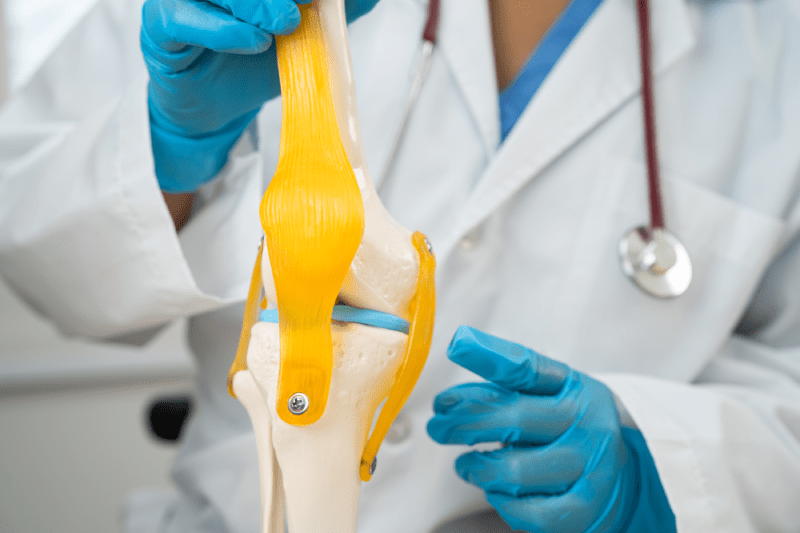
How is post-operative pain management done?
Post-operative pain management is done with a multimodal approach. This means that different types of pain relievers and methods are used together. Immediately after the surgery, regional anesthesia methods such as an epidural or nerve block control the pain. Afterwards, pain management is continued with prescribed pain relievers and ice packs.
Why is nutrition important after knee replacement surgery?
Post-operative nutrition is of critical importance for wound healing, muscle, and bone health. Adequate protein intake supports tissue repair. Calcium and Vitamin D help strengthen the bones. Foods rich in iron help compensate for blood loss. A balanced and healthy diet speeds up the overall recovery.
What should be focused on instead of age when determining the right time for surgery?
When determining the right time for surgery, one should focus on the severity of the knee pain and how much it affects the quality of life, rather than the patient’s chronological age. If the pain is seriously restricting daily activities (walking, sleeping, climbing stairs) and other treatment methods have failed, it is the right time for surgery.
What are the characteristics of the best surgeons in Turkey?
The best surgeons in Turkey are not only experienced, but they also have a patient-centric approach. They patiently answer the patient’s questions and provide transparent information about all the risks and potential benefits of the surgery. They also closely manage the post-operative follow-up process and do their best for the patient’s comfort.
What kind of exercises are done in physical therapy after knee replacement surgery?
In physical therapy after knee replacement surgery, exercises are done to increase the mobility of the knee and strengthen the surrounding muscles. It starts with passive movements and then progresses to active movements. Quadriceps strengthening, straight leg raises, and knee flexion exercises form the basis of this program.
Is the language barrier a problem for patients coming from abroad?
Many hospitals and clinics in Turkey that serve health tourism offer staff who speak multiple languages and interpreter services. This ensures that patients can communicate comfortably with their doctors and hospital staff. Online consultations are also usually done in the patient’s own language or with the help of an interpreter.
Are the results of the surgery permanent?
The results of knee replacement surgery are permanent when done correctly and when the patient takes good care of it. The lifespan of modern prostheses is 15-25 years or more. Adopting a healthy lifestyle after the surgery and following the doctor’s advice will extend the life of the prosthesis and maintain the success of the surgery.
